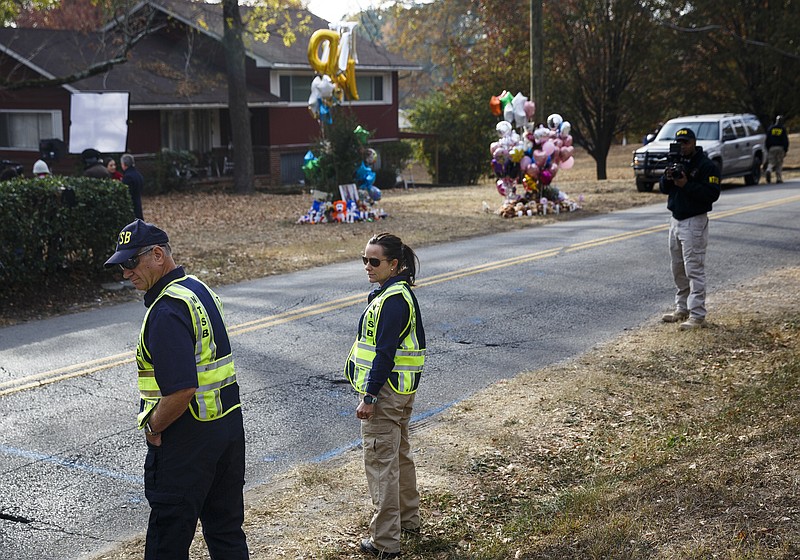Photo Gallery
Belew Christmas @ Wildwood Park for the Arts — 12/13/13
12/13 — Former The Voice contestant Cody Belew serenaded the audience with Christmas classics and tracks from his new album.
In the wake of the horrific school bus tragedy in Chattanooga, BBB and its Wise Giving Alliance partner is warning about the potential for fund-raising scams, and is urging donors to be aware of the different circumstances that often emerge in tragedy-related philanthropy.
This accident in our community is such a shocking and emotional event, many people will want to support and donate to the families of the victims, the injured children, Woodmore Elementary and the community. We are warning donors to be on the lookout for questionable solicitors and scammers, not to mention people who might have good intentions but no experience with charity fundraising or how to execute a mission objective.
BBB Wise Giving Alliance, the national charity monitoring arm of the Better Business Bureau, urges donors to give thoughtfully and avoid those seeking to take advantage of the generosity of others. Here are BBB tips for trusted giving in the wake of a tragedy:
1. Thoughtful giving: Take the time to check the charity to avoid wasting your generosity by donating to a questionable or poorly managed effort. The first request for a donation may not be the best choice. Be proactive and find trusted charities that are providing assistance.
2. State government registration: The states of Tennessee and Georgia require charities to register with its state government agency (state attorney general's office) before they solicit for charitable gifts. If the charity is not registered, that may be a significant red flag.
3. Respecting victims and their families: Organizations raising funds should get permission from the families to use either the names of the victims and/or any photographs of them. Experience shows some charities raising funds for tragic accidents and not requesting permission were the subject of criticism from victims' families.
4. How will donations be used? Watch out for vague appeals that do not identify the intended use of funds. For example, how will the donations help victims' families? Also, unless told otherwise, donors will assume funds collected quickly in the wake of a tragedy will be spent just as quickly. See if the appeal identifies when the collected funds will be used.
5. What if a family sets up its own assistance fund? Some families may decide to set up their own assistance funds. Be mindful that such funds may not be set up as charities. Also, make sure collected monies are received and administered by a third party such as a bank, CPA or lawyer. This will help provide oversight and ensure the collected funds are used appropriately (e.g., paying for funeral costs, counseling, and other tragedy-related needs.)
6. Advocacy organizations: Tragedies that involve school buses and children can also generate requests from a variety of advocacy organizations that support mandatory seat belts and other bus-related safety features. Donors can support these efforts as well, but note some of these advocacy groups are not tax-exempt as charities. Also, watch out for newly created advocacy groups that will be difficult to check out.
7. Online cautions: Never click on links to charities on unfamiliar websites or in texts or emails. These may take you to a lookalike website where you will be asked to provide personal financial information or to click on something that downloads harmful malware into your computer. Don't assume charity recommendations on social media have already been vetted.
8. Financial transparency: After funds are raised for a tragedy, it is even more important for organizations to provide an accounting of how funds were spent. Transparent organizations will post this information on their websites so anyone can find out and not have to wait until the audited financial statements are available sometime in the future.
9. Newly created or established organizations: This is a personal giving choice, but an established charity will more likely have the experience to quickly address the circumstances and have a track record that can be evaluated. A newly formed organization may be well-meaning but will be difficult to check out and may not be well managed.
10. Tax deductibility: Not all organizations collecting funds to assist this tragedy are tax-exempt as charities under section 501(c)(3) of the Internal Revenue Code. Donors can support these other entities but keep this in mind if they want to take a deduction for federal income-tax purposes. In addition, contributions that are donor-restricted to help a specific individual/family are not deductible as charitable donations, even if the recipient organization is a charity.
The Woodmore Fund was created with the United Way of Greater Chattanooga and other partners to help support the needs of the victims' families, and as Friday, the fund already had collected more than $112,000 in contributions.
Jim Winsett is president of the Better Business Bureau of Chattanooga.



